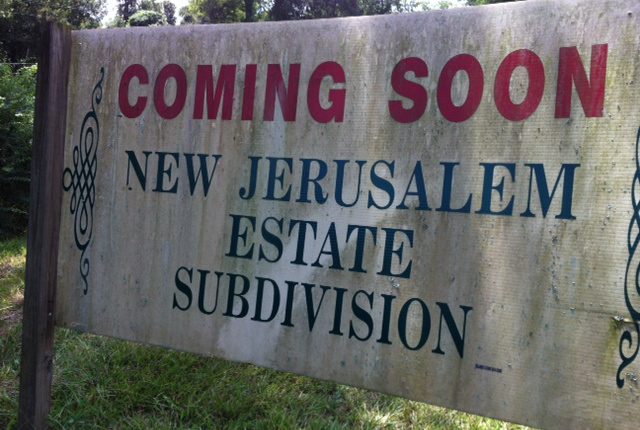 Today’s Second Reading from the Mass for the Sixth Sunday of Easter comes to us from the book of Revelation. In chapters 21-22, the last two chapters of the book, we see “New Jerusalem” (Rev 21:2) being established. Here in the “new world”, we have cities like New York, which corresponds to the old city of York in the British Empire. Likewise, there is need of a New Jerusalem for another “new world”. This new world is the new creation God will establish at the eschaton, at the end of time. Heaven will unite with earth. As we read today, the New Jerusalem comes “down out of heaven from God” to earth:
Today’s Second Reading from the Mass for the Sixth Sunday of Easter comes to us from the book of Revelation. In chapters 21-22, the last two chapters of the book, we see “New Jerusalem” (Rev 21:2) being established. Here in the “new world”, we have cities like New York, which corresponds to the old city of York in the British Empire. Likewise, there is need of a New Jerusalem for another “new world”. This new world is the new creation God will establish at the eschaton, at the end of time. Heaven will unite with earth. As we read today, the New Jerusalem comes “down out of heaven from God” to earth:
The angel took me in spirit to a great, high mountain
and showed me the holy city Jerusalem
coming down out of heaven from God.
It gleamed with the splendor of God.
Its radiance was like that of a precious stone,
like jasper, clear as crystal.
It had a massive, high wall,
with twelve gates where twelve angels were stationed
and on which names were inscribed,
the names of the twelve tribes of the Israelites.
There were three gates facing east,
three north, three south, and three west.
The wall of the city had twelve courses of stones as its foundation,
on which were inscribed the twelve names
of the twelve apostles of the Lamb
– Revelation 21:10-14
As Revelation scholar Wilfrid J. Harrington noted: “God did not say, ‘I will make new things’; rather, he is making all things new”. Like the Property Brothers, God is in the business of renovation, not demolition. God will not destroy the good creation he has made; he will transform it.
We see an element of this in the second reading, where both the twelve tribes of Israel are mentioned, along with the twelve apostles of the Lamb. There is continuity in the people of God; the Church does not reject true Israel, but is Israel in all its fullness, with the Messiah having come. Membership in God’s family is no longer restricted to one ethnic group, but now encompasses people from every tribe, tongue, and nation. This fulfills God’s original promise to Abraham: all the nations would be blessed through Abraham, in and through the nation of Israel.
We also see this in God’s plan for creation, and even for ourselves. In this Eastertide, when we celebrate the Resurrection of Jesus of Nazareth, we understand that he is the “firstfruits” of the New World. We too await “the resurrection of the dead, and the life of the world to come” (Nicene Creed) in a world that will be transformed, not thrown away. This creation made by God is “very good” and God will redeem it, including our very bodies. Saint Paul writes that the entire creation itself “groans” as it awaits renewal (Rom 8:19).
As we wait for this, what should we do? How should we live? As Saint Peter writes elsewhere, we should live as good citizens of the heavenly Jerusalem even now, as we live in the earthly city:
(W)hat kind of people ought you to be? You ought to live holy and godly lives as you look forward to the day of God and speed its coming. That day will bring about the destruction of the heavens by fire, and the elements will melt in the heat. But in keeping with his promise we are looking forward to a new heaven and a new earth, where righteousness dwells.
So then, dear friends, since you are looking forward to this, make every effort to be found spotless, blameless and at peace with him.
– 2 Peter 3:11-14

